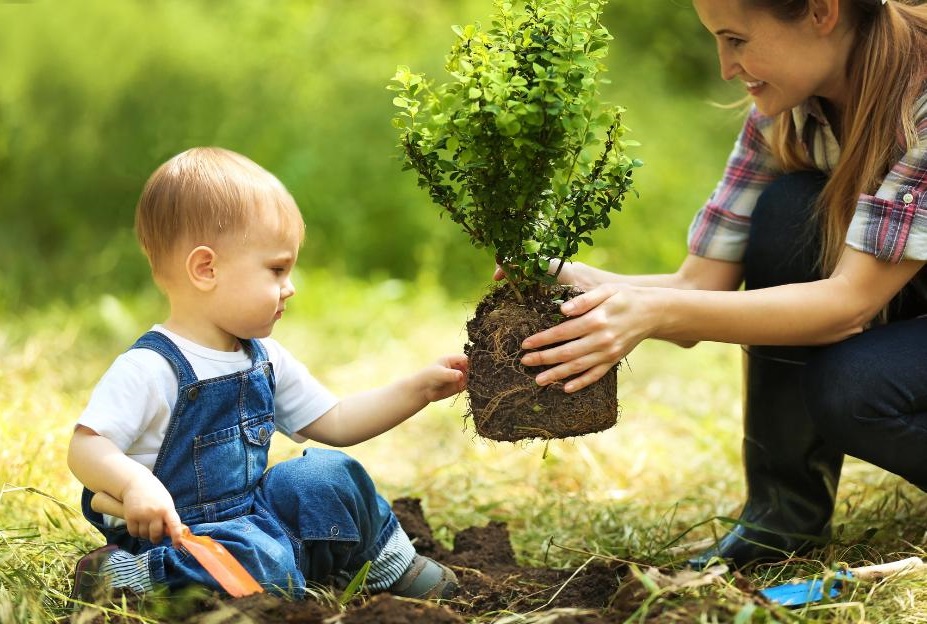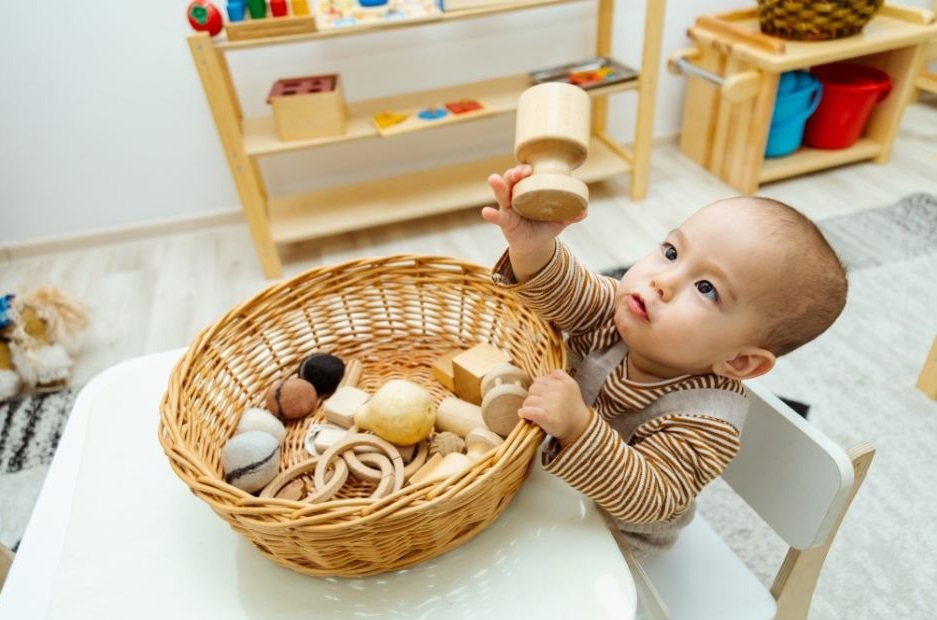Welcoming a younger brother or sister into the world is a huge occasion for a little one. They are likely to experience a range of big emotions including excitement, fear, anxiety, love, worry, and jealousy. Who wouldn’t feel a bit uneasy not knowing their future position in the family hierarchy when they have been the only one around? Imagine one day turning around to your partner, bringing someone else home to tell them they have to ‘share’ from now on?! What?!
The addition of a sibling often turns a young child’s world upside down. No longer are they getting all of a parent or caregiver’s attention. Even for little ones who love and enjoy their new brother or sister, they may still grieve the loss of their life as an only child. Or even if they already have a few siblings it can still be a bit of a tough transition, but we are here to help!
When these big feelings are coupled with the normal development and experiences of a young child, sibling rivalry may arise. If we look at these young children from a developmental perspective, this is the time where toddlers and preschool-aged children are attempting to assert their autonomy as they learn about boundaries. They are also learning how to explore and express their emotions. The changes and adjustments continue as the younger sibling gets older. Now the elder child is asked to share their parents and caregivers, their space, and their belongings. You could only imagine what they are going through! This results in low impulse control creating situations with their younger siblings that may lead to struggles including tantrums, hitting, biting, and throwing. We’ve all been there before, so what can we do?
The good news is that there are some helpful ways that you can support your child in their journey of becoming a big brother or sister that helps to eliminate rivalry and encourages peace, love, and understanding.
Supporting an older child before the arrival of a new sibling
One of the best ways to help a child understand and adjust to big changes in their lives is to prepare them for the event before it happens. Children always respond better when they have had plenty of warning! Here are some ways to help an older child prepare for the arrival of a new sibling before they make their debut into the world.
- Read books on their level about welcoming a baby brother or sister or becoming a big brother or sister.
- Introduce a baby doll and allow them to practice being gentle and caring for a baby.
- Involve the older child in setting up the space for the baby, introducing them to their clothes and toys so everything becomes familiar.
- Involve them in making art for the baby such as high contrast, black and white cards. This will help instill a sense of ownership and pride.
- Start encouraging independent play before the baby arrives. This will ensure that the older child does not associate the transition to more independent play only with the arrival of their new sibling.
- Bring them to baby appointments. Allowing the older child to tag along at doctor’s appointments where they can see and hear their younger sibling in the womb will help them feel involved and excited about their arrival.
- Talk about your pregnancy to your child. Tell them when you feel their little brother or sister moving or kicking. Let them feel the movements, too. This will help them understand what is happening and feel connected.
Supporting an older child after a new sibling arrives
So we are all prepped and ready as much as we thought we could be….but what can we do after the baby arrives? These are some ways a sibling can prepare for the arrival of a new sibling that helps them adjust to these big changes in their lives and lets them know you still care.
- Time and patience are key. There are no quick fixes in moments of major change such as this. It will take a few months and sometimes up to 6 months for the new routine to settle in.
- Acknowledge their new reality and validate their feelings. Reassure your older child that it’s ok to feel sad, angry, or jealous.
- Spend at least 10 minutes of uninterrupted, one-on-one time with your older child each day. Dedicate time each day where you can spend at least 10 minutes with your older child doing an activity of their choosing without any interruptions. This will help re-establish your bond and allow them to feel the connection they are likely to be seeking. This time may be when the baby is taking a nap or has gone to bed at night, but could also be while they’re laying on a movement mat when their needs are met.
- Spend time outside. Try to get outside in nature with your children as much as possible, preferably somewhere you feel safe for your older child to have the opportunity to run free.
- Look for opportunities for the older child to be a helper or teacher or to make a choice. Any time the older child is able to act in a leadership role, making decisions and helping out, they are likely to feel a sense of responsibility that supports their confidence and pride and boosts their autonomy. Ask your older child to fetch a diaper or wipes for you when their younger sibling needs to be changed. Allow the older child to show their younger sibling how to use the toilet or to get dressed. Have the elder child pick out their baby brother or sister’s outfit for the day.
- Lower your expectations. Sometimes we expect a lot from a sibling on the arrival of a new baby, for them to LOVE their sibling or act a certain way…it’s okay if they don’t, it doesn’t mean they don’t love them, it is just an adjustment period. Refrain from labeling them as ‘naughty’ or ‘bad’ or saying ‘That’s not nice she is your sister’ even if they state they hate their brother or sister. It is not a personal thing, they are just trying to adjust and cope with the change and transition period. Acknowledging their feelings, modeling for them and just supporting them is all they need.
- Regression is normal. We may see the older sibling starting to act like the baby, go back to wetting themselves or their bed, start acting out or behaving in a way we haven’t seen before and these are all just signs that they are having a hard time emotionally. They are looking to communicate the way they are feeling and they do display it physically, so don’t be alarmed if this is your child. It will pass with support.
Discover practical, easy-to-implement strategies to gently navigate your child’s emotional outbursts, while maintaining your own sense of calm.
How to manage sibling rivalry
There will be times where your children will fight, let’s be honest here. The way we respond to these situations even if it involves biting or hitting can either help children understand better ways to respond or fuel the fire! That’s why it’s so important to be conscious of the way we respond to them even if we just want to scream the house down and tell them to stop!
Knee-jerk responses that are very reactive can cause children to feel insecure. They may begin internalizing ideas that they are “bad” or “naughty” that may cause resentment to build, especially towards the new baby. Here are some things you can do to help support your children both individually and as siblings to ensure positive outcomes:
- Promote physical safety. Create physical distance and separation when necessary to ensure both children remain physically protected. Do the same for yourself, walking away from situations when a young child is very upset and is using physical force. In these moments, let the child know that you are keeping yourself or their sibling safe by moving away.
- Create emotional safety. Quite often, unsafe physical behavior is a result of big emotions. A child may be feeling emotionally unsafe in a particular situation, leading to unsafe behaviors. Create emotional safety by accepting all of your child’s big feelings no matter when or where they appear. Acknowledge and validate their emotions and experiences. Allowing a child to express their feelings gives them the reassurance they need to know they are loved, cared for, and safe. In quieter, calmer moments, talk to children about emotions as well and help them develop strategies for managing big feelings when they arise. You could even set up a calming corner.
- Encourage taking turns instead of sharing. Sharing is an adult concept that is very difficult, if not impossible, for young children to understand. Instead, encourage turn taking. If an older child is upset that their brother or sister is playing with one of their toys or they take a toy from their younger sibling, try to step back and let them solve the problem on their own. If the behavior continues to occur, set a limit while still offering choices and acknowledging the child’s feelings. You might say something like, “You really just want that toy your brother is playing with, it’s his turn now. Do you want to play with the train or the puzzle instead?”
Overall, it’s important to have realistic expectations. It’s never an easy transition welcoming a new baby as it is a big adjustment for the entire family. Try to consider what the experience of gaining a little brother or sister might feel like for your child and remember that they’re still learning how to process and understand their own feelings and the world around them. Stay calm, be present, try to find any time for yourself as well and spend time with your children, both together, and individually, letting them know they’re loved. Developing connection is key to creating supportive sibling relationships and know that this is all just a period in time. Siblings are a beautiful bond and relationship, like anything love and support will help it all, that includes you.






